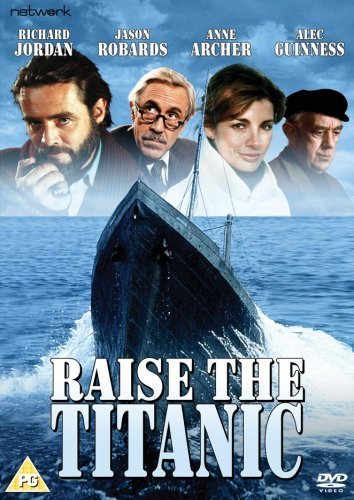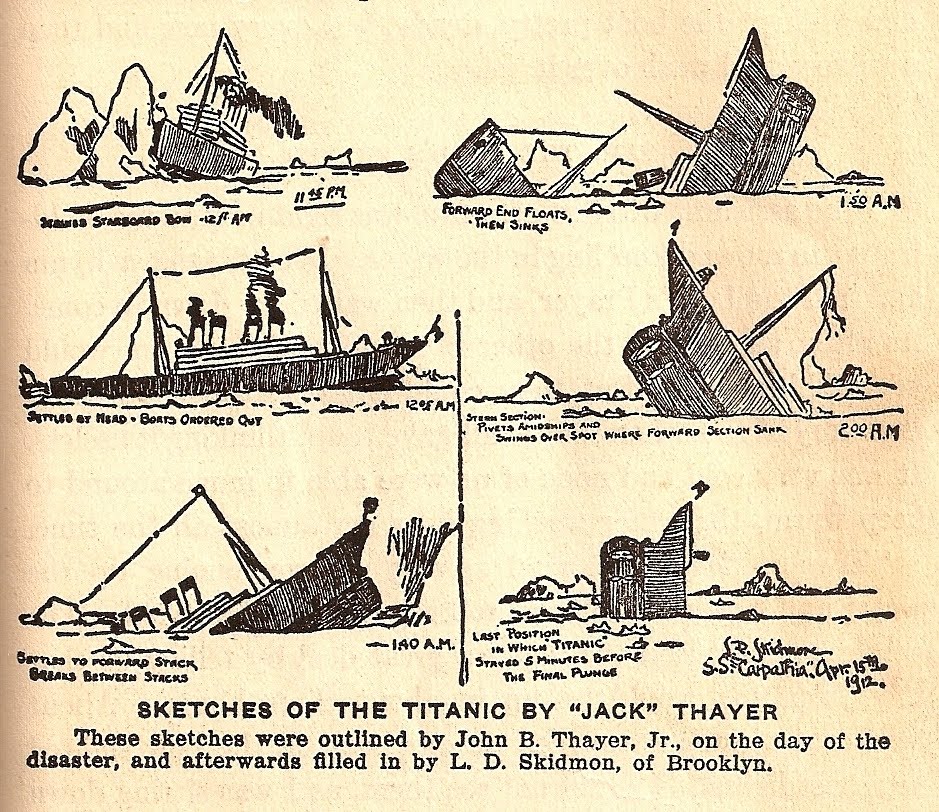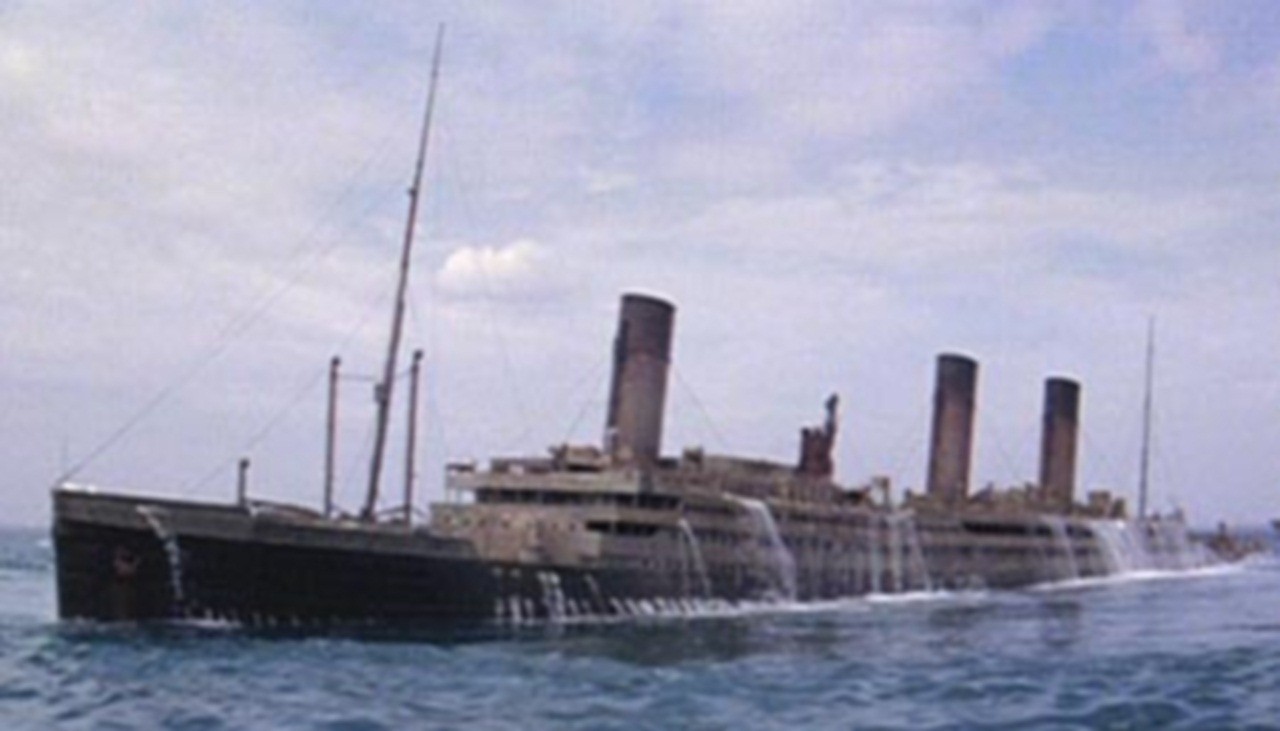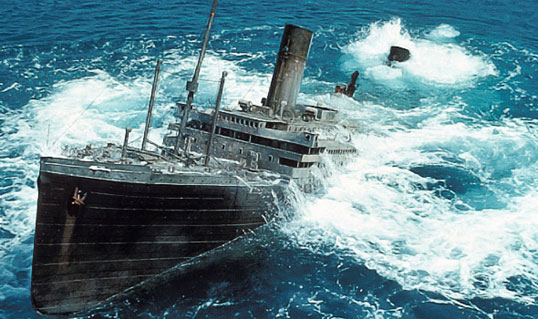
If you have not discovered The Head That Launched A Thousand Books I suggest you go there now, it is certainly far more worthwhile than reading this review. Unless of course you’re considering actually watching Raise the Titanic! in which case, do please read on and realise your folly.
My recent post regarding films about the Titanic omitted this monstrosity sterling piece of film making, something which a fellow blogger at above blog (seriously check it out!) has asked me to rectify.
The wreck of the Titanic was not found until 1985 despite numerous attempts to discover it since 1912. The novel Raise the Titanic! was released in 1976, the film in 1980 both before the wreck had been identified. The conditions of the wreck were unknown, as it would be physically impossible to raise any part of the ship, as it lies now. Even though the last survivors off the Titanic claimed to have seen it split, it was agreed that the ship had sank intact. Indeed, even after discovering the wreck which lies in two large parts, research has shown that the Titanic did not break above the surface. Those nearest to it were probably aware of the break beneath the water, but until the wreck was found it was accepted that the ship was intact, hence why somebody thought it was at least theoretically possible that it could have been raised.

Plot
The American government has developed technology which can stop oncoming Soviet missiles. Unfortunately the only power source which can sustain this technology is a mineral that can only be found in Russia (the irony division helped in the design). Upon reaching said mine, an American agent discovers that the mineral is gone and instead he finds a deceased American agent complete with a newspaper from 1912, before the Soviets give chase.
It develops that another American had loaded the mineral in question (byzanium) onto the Titanic. A sailor from the Titanic admits that during the sinking he had locked the American into the hold containing the byzanium, his last words being ‘thank God for Southby’, words that are considered meaningless (fools!). With the sailor’s help the wreck of the Titanic is located and the team immediately sets about to …well…raise the Titanic. After some mishaps the wreck is indeed raised and delivered to New York, finally reaching it’s destination albeit somewhat later than planned. The storage hold is opened and, the body of the agent is found inside, but *dramatic fanfare* no minerals.
Turns out ‘thank God for Southby’ is pivotal, and before leaving Britain the agent had the mineral buried in a grave in the town of Southby. After discovering the location of the byzanium the team decide, that actually, in order to preserve the peace between America and the USSR they are going to leave it where it is.

‘Shut up man.’
Conclusions
It’s not a good film. Not at all.
The idea that a government would develop technology that they have no way of powering and would then abandon the single power source available to them, after spending millions on the technology itself and the raising of a long sunk ship, is of course ludicrous. They raise the Titanic from the depths of the ocean at great cost, but when it actually comes to excavating what they’re looking for, they decide not to for the sake of diplomatic relations. Even though they’ve already developed the technology designed to antagonise another country. Shortly before the end of the film one of the characters announces that actually the whole undertaking was pointless and everyone is generally agreed that the entire premise is a bad idea and they have all wasted their time. Which isn’t usually what I expect from a film.
The acting is alright, but the screenplay is awful. The film’s only flaw is the story, unfortunately that’s a pretty terrible flaw to have. The actual raising of the Titanic is neat, but hardly worth the trauma of actually watching the film.
The film had a budget of 40 million dollars, mostly because they massively overspent on finding a ship to act as the Titanic. At box office the film saw a return of 7 million. The owner of the production studio famously remarked that, ‘it would have been cheaper to lower the Atlantic,’ and the author of the book Raise the Titanic! was so appalled by the result, he refused to allow any of his works be adapted for film again. Just in case you weren’t convinced it was really that bad.

Follow us on Twitter @HistoryRemaking













